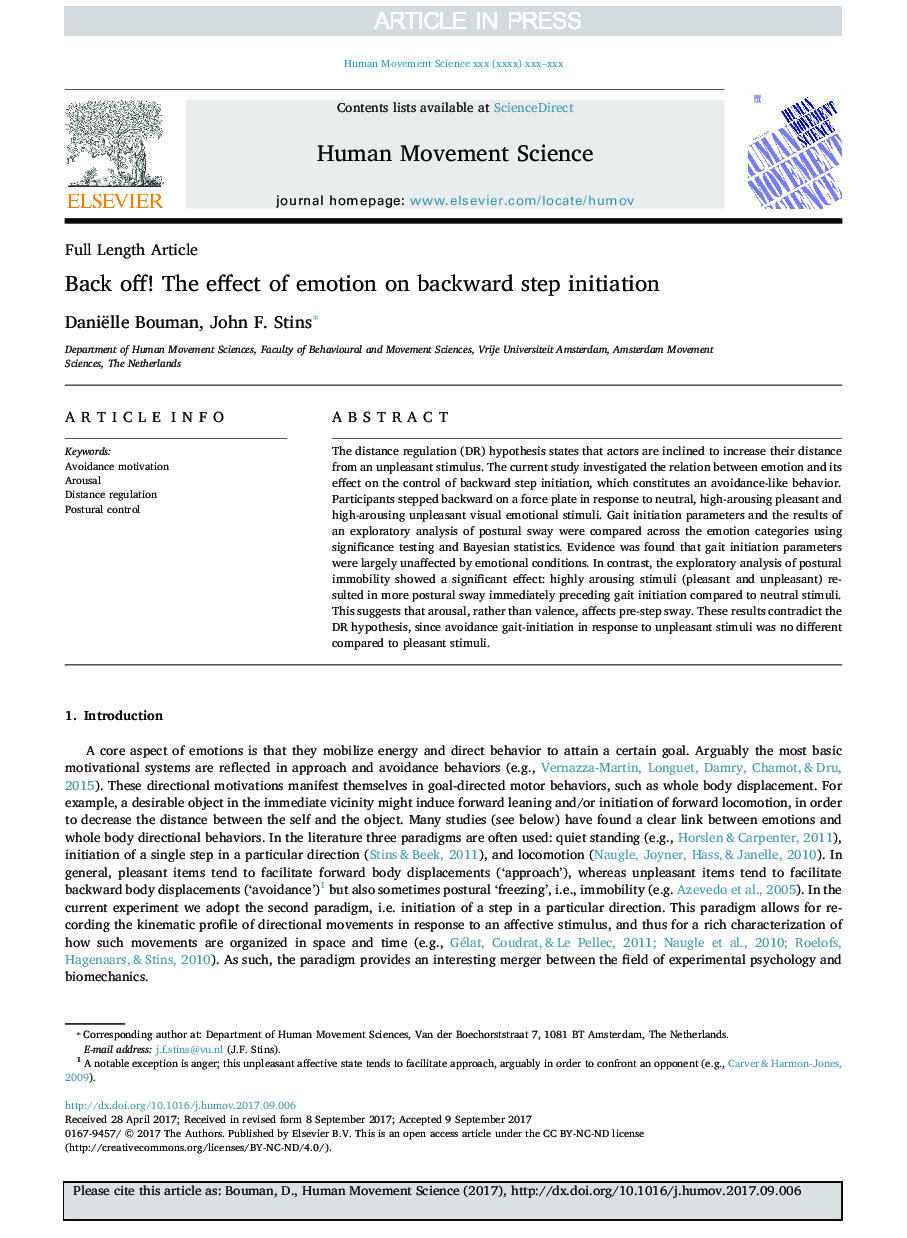| Article ID | Journal | Published Year | Pages | File Type |
|---|---|---|---|---|
| 7291059 | Human Movement Science | 2018 | 11 Pages |
Abstract
The distance regulation (DR) hypothesis states that actors are inclined to increase their distance from an unpleasant stimulus. The current study investigated the relation between emotion and its effect on the control of backward step initiation, which constitutes an avoidance-like behavior. Participants stepped backward on a force plate in response to neutral, high-arousing pleasant and high-arousing unpleasant visual emotional stimuli. Gait initiation parameters and the results of an exploratory analysis of postural sway were compared across the emotion categories using significance testing and Bayesian statistics. Evidence was found that gait initiation parameters were largely unaffected by emotional conditions. In contrast, the exploratory analysis of postural immobility showed a significant effect: highly arousing stimuli (pleasant and unpleasant) resulted in more postural sway immediately preceding gait initiation compared to neutral stimuli. This suggests that arousal, rather than valence, affects pre-step sway. These results contradict the DR hypothesis, since avoidance gait-initiation in response to unpleasant stimuli was no different compared to pleasant stimuli.
Related Topics
Life Sciences
Neuroscience
Cognitive Neuroscience
Authors
Daniëlle Bouman, John F. Stins,
